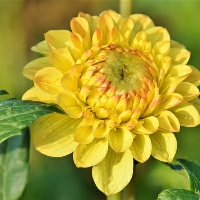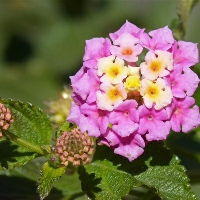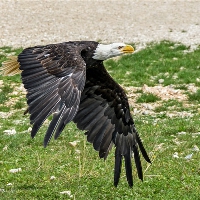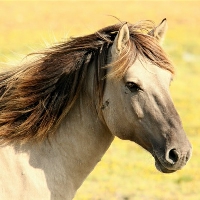英语写作技巧·高考英语写作高级替换词
名词
Problem: issue, question, case, trouble, difficulty, dilemma.
Meeting: conference, discussion, assembly, conclave, congress, convention, gathering session, assignation, encounter, confrontation, argument, controversy…
Study: learning, application, lessons, reading, research, school work, examination, analysis, consideration, contemplation, inspection, investigation, knowledge,scholarship…
Advantage: benefit, dominance, precedence, profit, superiority, merit…
Disadvantage: shortcoming, weakness, inconvenience, drawback, deficiency, flaw, handicap (also v. 妨碍), downside, limitation.
形容词/副词
Important: essential, significant, vital, crucial, profound, play a pushing role, indispensable, requisite, critical, fundamental, primary, elementary, underlying, rudimentary, basically, necessary…
-附加-傻句替换:I think that A is more important than B. (这是经典大傻句!以下句中的'important'可随意替换同义词)
1. A is important to B.
2. A plays an/a important role to B.
3. A is of (great\enormous\significant\awesome) to B.
4. B can not (live\developed\grow\survive\achieve) without A.
5. A means (a lot\a great deal\much) to B.
6. The importance of A (to B) can never be (exaggerated\denied\ignored\doubted).
7. A is everything/the whole world to B.
8. B is fundamental on A.
9. A matters/counts to B.
10. Nothing is more crucial to B than A.
11. A is to B what the (foundation is to a skyscraper\water is to fish\the heart is to a human)
Big: gigantic, massive, colossal, enormous, immense, gargantuan, tremendous, titanic, giant, vast, large, huge, monster, bulky,
->many: numerous, myriad, infinite,
->forever (adv): infinity, eternal, timeless, everlasting,undying, endless, changeless, perpetually…
Small: minimum, diminutive, minute, petite, wee, undersized, teeny, tiny, little, petite(女子身高娇小)
Good: marvelous, fabulous, gorgeous, spectacular, outstanding, distinguished, remarkable, superb, incredible, unbelievable, out of this world, magnificent, charming, stunning, fantastic, terrific, excellent, great, wonderful, amazing, awesome
Bad: awful, terrible, dreadful, defective, faulty, imperfect, inadequate, poor, substandard, unsatisfactory, harmful, damaging, deleterious, detrimental, hurtful, ruinous, unhealthy, evil, immoral…
Clever: brilliant, knowledgeable, intellectual, intelligent, excellent, bright, smart
Happy: delightful, delectable, elated, glad, overjoyed, pleased, jubilant, merry, joyful,
Beautiful: charming, charismatic, attractive, gorgeous, pretty, endearing, sweet, adorable, eye-catching, handsome, hot, cute, good-looking, lovable, engaging…
Fast:swift, quick, rapid, speedy, hasty, nippy, like lightning, +hurry (v): hustle, rush, make haste, tear, step on it, dash, get a move on, step on it, scoot.
Easy: simple, effortless, no trouble, painless, plain sailing, uncomplicated, undemanding, unproblematic, a piece of cake (informal), child's play (informal),…
Clear: obvious, apparent, blatant, comprehensible, conspicuous, distinct, evident, manifest, palpable, plain, pronounced, recognizable, transparent, intelligible, lucid, plain, understandable, uninvolved, simple, …
Direct: bald, basic, frank, naked, plain, sincere, stark, straightforward, candid, forthright, outspoken….
Difficult: hard, tricky, complicated, complex, intricate, involved, knotty, perplexing, puzzling, thorny…
Angry: annoyed, cross, displeased, enraged, exasperated, incensed, infuriated, irate, mad (informal), livid (informal), berserk, outraged, resentful...
Dangerous: perilous, breakneck, chancy (informal), hazardous, insecure, precarious, risky, unsafe, vulnerable
连词篇:(介词,副词)
Firstly: previously, beforehand, foremost, initially, originally, formerly, principally, mainly, essentially, basically, generally, commonly, universally, on the whole, fundamentally, to begin with, to start with, first of all, at the outset…
Then: subsequently, afterward, thereafter, after that, secondarily, what is more, furthermore (further more)…
Lastly: ultimately, eventually, in conclusion, to conclude, as a final point, last of all, last but not least, finally…
Too: as well (句末)也, in addition, besides, moreover, additionally, to boot, excessively, also…
And: plus, as well as, along with, in addition, bonus, with…
Or: otherwise, if not, before, or else…
So (adv): therefore, thus, consequently, accordingly, as a result, for that reason, hence, that's why
Because: as, due to, since, as to, in that, for the reason that, for, now that…
But: however, moreover, nevertheless, nonetheless, on the contrary, on the other hand, 让步although, even thought, though, even if, while, as, despite the fact that…
Only: just, merely, barely, singly, solely, rarely…
Without: excluding,
Very: extremely, acutely, decidedly, deeply, exceedingly, greatly, highly, uncommonly, profoundly, unusually…
Actually: as a matter of fact, indeed, in fact, in point of fact, in reality, in truth, literally, truly …
动词
Think (that): hold the (opinion/ belief/ position/stand point/idea) that, assume, believe, deem, reckon, argue, maintain, suppose, conceive, insist, be convinced, to my knowledge, personally, from my personal perspective, as far as I am concerned, from my point of view, from my angle, consider, conceive, perspective...
Show: convey, reveal, express, corroborate, justify, imply, verify, clarify, signify, exemplify, illuminate, substantiate, demonstrate, elucidate, denote, characterized as, instruct, display, disclose, indicate, means, explain, give an/a example (reason, explanation) of, bear out, point out, point toward…
Know: realize, comprehend, identify, distinguish, discern, notice, perceive, recognize, see, understand, figure out, be acquainted with, be familiar with,
Get: acquire, attain, acquire, achieve, obtain, gain “学习” 不用learn
Suggest: have a proposal in,
Increase: magnify, expand, proliferate, mushroom, improve, enhance, advance…
Impress: affect, inspire, engrave on, imprint of,
Influence: impact, affect, guide, sway,
Stop: halt, cease, conclude, desist, end, pause, put an end to, quit, refrain, shut down, terminate…
Make: create, assemble, built, construct, form, manufacture; fore, cause, compel, constrain, drive, impel, induce, oblige, prevail, upon, require…
Give: present, award, contribute, deliver, donate, grant, hand over, hand out, provide, supply
Break:separate, burst, crack, destroy, disintegrate, fracture, fragment, shatter, smash, snap
Destroy: ruin, raze, annihilate, crush, demolish, devastate, eradicate, shatter, wipe out, wreck, obliterate, weaken, undermine…
Happen: occur, come about, come to pass, develop, result, take place, transpire
 天南星 2022-10-09 03:27:47
天南星 2022-10-09 03:27:47









